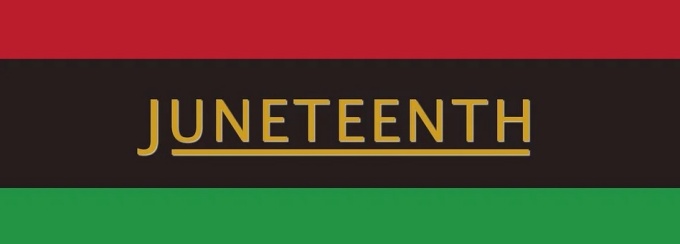Juneteenth Celebration

Juneteenth commemorates the emancipation of enslaved African Americans.
Also known as Emancipation Day, Freedom Day and America’s “second Independence Day,” Juneteenth can mean different things to different people.
It can be a time to celebrate with family and friends. But it can also be a time to reflect on the work that remains to be done addressing institutional racism and systemic inequality.
What Do We Really Celebrate On Juneteenth?
Juneteenth commemorates the events of June 19, 1865, when Union General Gordon Granger informed enslaved African Americans in Galveston, Texas, that the Civil War had ended and they were finally free.
Granger’s news came two months after Confederate General Robert E. Lee surrendered at Appomattox Court House and more than two years after President Abraham Lincoln signed the Emancipation Proclamation.
It has been 158 years since this victory, yet we are still fighting racism and other struggles related to inequality and injustice. This holiday remind us that our work is not yet done.
Juneteenth Festival Celebration in Buffalo, NY
Buffalo is the second city of massive Juneteenth Celebration after Galveston, Texas.
The Jacobs School is proud to be participating in the Juneteenth Festival again this year. Through collaborations with several departments and student groups, our presence at the festival will include important activities aimed at engaging the community in learning about CPR, accessing cancer screenings, providing youth with information about careers in medicine and biomedical sciences, and so much more!
To learn how to get involved, contact the Office of Inclusion and Cultural Enhancement at smbs-inclusion@buffalo.edu
What Does Juneteenth Mean at the Jacobs School?
We asked members of the Jacobs School community: “What does Juneteenth mean to you?”
Here are the perspectives they shared:
Points to Highlight During this Holiday
Emancipation Proclamation 1863
President Abraham Lincoln declared that all slaves in the states currently engaged in rebellion against the Union “shall be then, thenceforward, and forever free.” This document applied only to enslaved people in the Confederacy, but it definitively contributed to the subsequent abolition of slavery.
13th Amendment 1863-1865
The 13th Amendment to the United States Constitution formally abolished slavery in the United States. It states that: “Neither slavery nor involuntary servitude, except as a punishment for crime whereof the party shall have been duly convicted, shall exist within the United States, or any place subject to their jurisdiction.” Although this was done in 1865, it still took two additional amendments to get increased rights granted by the 1791 Bill of Rights to former slaves — and their right to vote in 1870.
Juneteenth - June 19, 1965
Juneteenth is considered the Second United States Celebration of Independence by the Black community.
Greenwood District 1900-1942
Located in Tulsa, Oklahoma, the Greenwood District also knows as “Black Wall Street” began to emerge as a vibrant and successful economy and was recognized as a Black entrepenurial business center led by African American entrepenuers. This vibrant space was destroyed in 1921 due to social and economic tension, but it was rebuilt and thriving by 1942.
Civil Rights Movement 1955
The Civil Rights Movement sparked after Rosa Parks refused to give her seat to a white man on a bus in Montgomery, Alabama. Then Martin Luther King Jr. founded the Montgomery Improvement Association — and after, he became the leader of the Civil Rights Movement. It was an empowering time for Black Americans. Civil Right Acts Legislations were approved in regards to:
- the end of segregation laws
- equal employment opportunities
- the ban of voter literacy tests
- fair housing
Black Panther Party 1966
Originally called Black Panther Party for Self Defense, this party was created to patrol African American neighborhoods to protect residents from acts of police brutality. In time, it transformed into an organization that advocated for social reforms. They campaigned for prison reform, held voter registration drives, organized free food programs and opened free health clinics. Shortly after, violence within the party precipitated a major downfall.
Black Lives Matter 2013
Black Lives Matter was initiated in 2013 after the acquittal of George Zimmerman in the shooting death of Trayvon Martin back in 2012. From that point it grew as a national and worldwide movement and has spearheaded demonstrations protesting police brutality and systematic racism that overwhelmingly impact the Black community.
Juneteenth Proclaimed Official Holiday in 2021
President Joe Biden signed a bill on 2021 making June 19 — Juneteenth — a federal holiday.
Reflecting on the Past
Take a minute to reflect on how far we have come, and at the same time, how much more we need to achieve. Let’s not forget these figures who helped shape the accomplishments of activism.
Explore Resources
“I prayed for freedom for twenty years, but received no answer until I prayed with my legs.” – Frederick Douglass, American Abolitionist.












